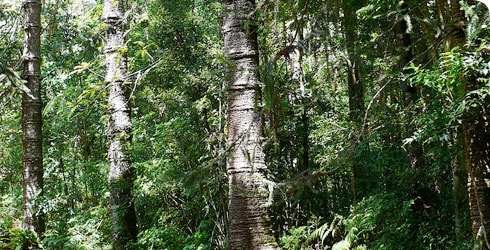Conservation
Eliurus webbi is threatened by deforestation as increasingly its natural habitat is converted to cultivated land. However, it is present in a number of protected areas across eastern Madagascar and is also found in secondary forest (International Union for the Conservation of Nature, 2009).
It is listed as of least concern by the IUCN because:
- it is widely distributed
- there is likely to be a large population
- it is found in a number of protected areas
- it is unlikely to be declining fast enough to qualify for listing in a threatened category
